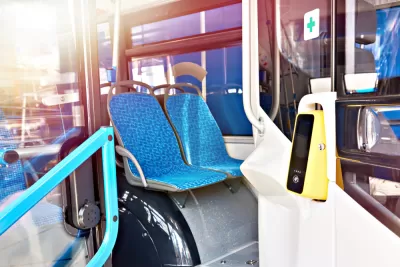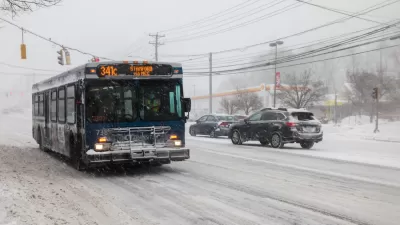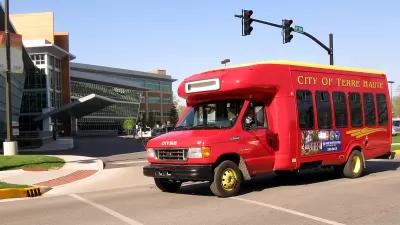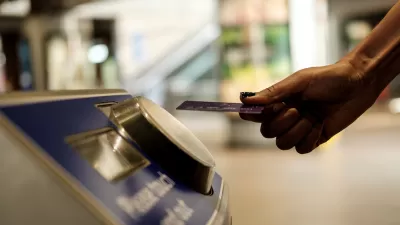Many of the riders who rely on public transit the most are also least likely to be able to use cashless fare systems.

A study from the University of Oregon reveals that eliminating cash payments on public transit systems can harm low-income users, who are often most dependent on transit for daily needs.
“They’re also less likely to have a credit card, smartphone, or even the cash reserves to pay for a monthly transit pass upfront,” and have a harder time reloading fare cards without cash options, the study showed. “If people have to visit a gas station or convenience store to reload their bus card with cash, how will they get there?”
“Maintaining cash fare boxes is very expensive; each one can cost thousands of dollars. But accepting cash also increases ridership, giving people more flexibility to hop on a bus without having to jump through hoops to set up an account or link a credit card.” In other words, transit agencies could still lose revenue from lost ridership despite the savings of eliminating cash fareboxes.
The report’s author, Professor Anne Brown, points out the simplest solution: no fares for anyone. “Fares make up only a part of the budget for most transit agencies, and that financial gap could be closed in other ways.” Proponents of fare-free transit argue that—when paired with effective service—it eliminates a major expense for low-income commuters and encourages more ridership.
FULL STORY: Study: Cash payments remain a key part of equitable transit

Trump Administration Could Effectively End Housing Voucher Program
Federal officials are eyeing major cuts to the Section 8 program that helps millions of low-income households pay rent.

Planetizen Federal Action Tracker
A weekly monitor of how Trump’s orders and actions are impacting planners and planning in America.

Ken Jennings Launches Transit Web Series
The Jeopardy champ wants you to ride public transit.

Crime Continues to Drop on Philly, San Francisco Transit Systems
SEPTA and BART both saw significant declines in violent crime in the first quarter of 2025.

How South LA Green Spaces Power Community Health and Hope
Green spaces like South L.A. Wetlands Park are helping South Los Angeles residents promote healthy lifestyles, build community, and advocate for improvements that reflect local needs in historically underserved neighborhoods.

Sacramento Plans ‘Quick-Build’ Road Safety Projects
The city wants to accelerate small-scale safety improvements that use low-cost equipment to make an impact at dangerous intersections.
Urban Design for Planners 1: Software Tools
This six-course series explores essential urban design concepts using open source software and equips planners with the tools they need to participate fully in the urban design process.
Planning for Universal Design
Learn the tools for implementing Universal Design in planning regulations.
Heyer Gruel & Associates PA
Ada County Highway District
Institute for Housing and Urban Development Studies (IHS)
City of Grandview
Harvard GSD Executive Education
Toledo-Lucas County Plan Commissions
Salt Lake City
NYU Wagner Graduate School of Public Service





























